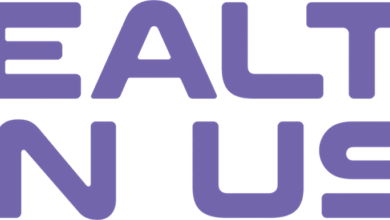A Comprehensive Guide to Weight Loss Injections in Salt Lake City

Losing weight can be one of the most challenging health journeys, especially when diet and exercise alone aren’t enough. If you’ve tried everything from calorie tracking to daily workouts without long-term success, weight loss injections might be the missing piece. These medically supervised treatments are growing in popularity for individuals who need more than willpower to achieve lasting results.
Whether you’re battling obesity, struggling with metabolic resistance, or simply frustrated with slow progress, understanding how weight loss injections work—and how to access them in your area—is key to making an informed decision.
In this post, we’ll dive into how weight loss injections function, what options are available, who they’re best suited for, and where to find trusted care for weight loss injections in Salt Lake City.
What Are Weight Loss Injections?
Weight loss injections are FDA-approved medications delivered via subcutaneous injection to support fat loss, regulate hunger hormones, and optimize metabolism. These treatments are not “magic shots,” but when combined with medical oversight and lifestyle changes, they can yield significant and sustainable results.
Some of the most commonly prescribed injections include:
-
GLP-1 receptor agonists (like semaglutide) – Medications such as Ozempic and Wegovy mimic the gut hormone GLP-1, helping regulate insulin, suppress appetite, and slow gastric emptying.
-
Lipotropic injections – These combine B12, methionine, inositol, and choline to help the liver break down fat more efficiently.
-
NAD+ injections – A newer approach that boosts cellular energy, improves mitochondrial function, and supports fat oxidation.
Each type serves a different purpose, and the right choice depends on your personal health history, goals, and how your body responds.
Benefits of Weight Loss Injections
If you’ve struggled to lose weight through conventional means, medical weight loss injections can provide real advantages:
1. Appetite Regulation
GLP-1 injections are particularly effective in helping people feel full faster and stay full longer. This natural hunger suppression makes it easier to stick to a healthy eating plan without feeling deprived.
2. Improved Blood Sugar and Metabolism
Many injectable treatments help stabilize insulin and blood sugar levels, which can help prevent energy crashes and reduce fat storage.
3. Consistent Fat Loss
Compared to crash diets or extreme workouts, patients often see more consistent and steady fat loss—especially in hard-to-target areas like belly fat.
4. Customized Medical Supervision
These treatments are administered under professional guidance, reducing the risks of side effects or misuse.
Who Are These Injections For?
Weight loss injections aren’t suitable for everyone. Generally, ideal candidates include:
-
Adults with a BMI of 27+ with comorbid conditions (e.g., high blood pressure, type 2 diabetes)
-
People with a history of failed diet and exercise efforts
-
Individuals committed to making long-term lifestyle changes
-
Patients seeking medical accountability and structured weight management
Not sure if you’re a candidate? Most clinics will start with a medical consultation, lab work, and body composition analysis to determine the best course of action.
Weight Loss Injections Salt Lake City: What to Expect Locally
When searching for weight loss injections Salt Lake City, you’ll find a growing number of clinics offering medically supervised treatments tailored to your needs. What makes Salt Lake City a strong choice for medical weight loss care?
-
Access to board-certified physicians in obesity medicine
-
Clinics offering personalized weight loss plans, not one-size-fits-all
-
Integrated care including lab monitoring, nutritional support, and wellness coaching
Many clinics provide options for in-office administration or teach patients how to self-inject at home. Follow-ups, routine assessments, and professional support are typically included in your treatment plan.
Side Effects and Safety Considerations
While these treatments are generally safe, potential side effects can include:
-
Nausea or upset stomach (especially with GLP-1 drugs)
-
Injection site discomfort
-
Headache or fatigue
-
Mild changes in digestion
A licensed provider will monitor your response and adjust dosages or medications as needed. Always disclose any medical history or current prescriptions during your consultation.
How Do They Compare to Traditional Weight Loss Methods?
You may be wondering: Why not just stick with diet and exercise? The answer lies in the biology of obesity and weight regulation. Hormones like insulin, ghrelin, and leptin all influence appetite, fat storage, and energy usage.
While traditional methods are essential, they often fail to address the hormonal and metabolic drivers behind weight gain. In contrast, weight loss injections target those exact systems.
Curious how these treatments stack up against diet and exercise alone? Check out our in-depth comparison here:
👉 GLP-1 Injections vs Traditional Weight Loss Methods
Final Thoughts: Is It Worth It?
Weight loss injections are not a quick fix, but they are a medically validated tool to support your journey. If you’re based in Utah and searching for weight loss injections in Salt Lake City, you’ll benefit from a blend of cutting-edge treatment and compassionate care.
The most successful patients are those who combine injections with healthier eating, movement, and follow-up care. When done right, it’s not just about shedding pounds—it’s about improving health, confidence, and long-term vitality.





